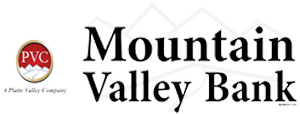When you bank online, you trust that your account is safe from hackers. Even so, online accounts can seem to consumers like easy targets: Instead of robbing a bank, a criminal could simply whisk away your money with a few keystrokes.
To combat these concerns — and protect your cash — banks and credit unions have a number of policies to keep online customer accounts secure. Standard measures include using firewalls, anti-virus protection on bank computers, fraud monitoring and website encryption, which scrambles data so only the intended recipient can read it. If you bank online, chances are your financial institution employs these security measures.
So is online banking already safe?
Online banking is safe when secure bank technology on the back end is met with alert consumers on the front end. As an account holder, you have a role in making sure accounts are protected.
Large-scale data breaches get the headlines, but criminals also work on a smaller scale by attacking consumers directly. For example, fraudsters often use so-called phishing scams, in which they send out emails pretending to represent a financial institution in the hopes of hooking an unsuspecting consumer.
The email might suggest there’s a problem with your account and ask for your bank password or Social Security number. Or it might say you won $100 million, but your account information is needed to wire the funds. If you reply, the criminal could use the information to illegally make purchases or withdraw money from your account. Don’t respond to emails that are too good — or bad — to be true.
Ways to protect yourself
Skip public Wi-Fi for private banking. With a public network, you can’t be totally sure who sees what you send online, unless each page you visit is encrypted. The security of your private home network is ideal. If you have to log in while away from home, consider using your cellular data plan instead of Wi-Fi, or a virtual private network, known as a VPN. However you choose to log in, check for web page encryption by making sure the address on the browser starts with “https.” The “s” signals that the page is secure.
Keep anti-virus software current. Make sure yours is up to date on your home computers and mobile devices.
Choose an institution that uses industry-standard security. You probably already want a bank or credit union that offers accounts with low fees and high interest rates. Add “top notch security” to your checklist. Then, make sure your online accounts are backed by robust technology.
An example is multifactor authentication. Here’s how it works: When logging in, instead of just asking for a username and password, the financial institution requires you to provide another piece of information, or factor, to verify yourself. It could be a unique passcode sent to your smartphone as a text message, or even your own fingerprint. The point is it’s another layer, one not so easy to steal.
Many of the larger online banks — and traditional institutions with online accounts — adhere to these standards, so it should be easy to find a bank or credit union that fits the bill.
Change passwords regularly. Use combinations that are difficult to guess, such as a mix of uppercase and lowercase letters, numbers and symbols. The more complex the password, the harder it will be to crack and the more likely it will provide protection against hackers.
Ask for text alerts. Many institutions let customers choose to receive alerts via text or email whenever large transactions are made on their accounts, or if the balance drops to a certain amount. That way, customers can reach out to the bank immediately if they see a purchase or transfer they didn’t make, and protect their account against further fraudulent activity. In addition, customers can dispute unauthorized charges for 60 days after the date of their bank statement.
» Concerned your account has already been breached? Find out how to act fast to minimize the damage.
Online banking comes with its own set of risks, but there are also conveniences — monitoring your balances to avoid fees, depositing checks, sending money to friends and family, and earning more interest from online-only banks that feature the best rates.
Take steps to protect your accounts while making sure your bank uses industry-standard security technology. This way you can enjoy the conveniences of banking online while also keeping your accounts safe.
The article Is Online Banking Safe? How to Boost Your Banking Security originally appeared on NerdWallet.


Recent Comments